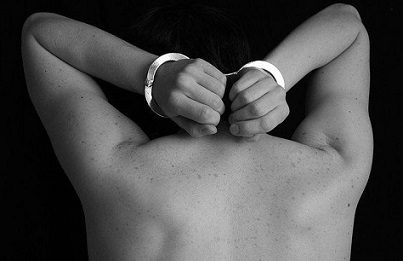BREAKING COVID-19 News! Japanese Case Study Shows That SARS-CoV-2 Infections Can Lead To Severe Sexually Deviant Behaviors!
COVID-19 News - Severe Sexually Deviant Behaviors May 12, 2023 2 years, 8 months, 4 weeks, 7 hours, 36 minutes ago
COVID-19 News: Breaking ground in our understanding of COVID-19's neurological impacts, a captivating case study from Kobe City Medical Center General Hospital, Japan, has brought to light an unprecedented link between SARS-CoV-2 infection and severe sexually deviant behavior. The far-reaching implications of this revelation are sure to send shockwaves through the global medical community and the general public alike.

For a while now, we've recognized the long-tail effects of COVID-19, the so-called 'long COVID' or Post-Acute COVID-19 Syndrome (PACS). Characterized by lingering symptoms like 'brain fog,' cognitive issues etc, PACS has largely remained a mystery until now. This study shines a spotlight on the unexplored dark corners of PACS, introducing us to a male patient whose COVID-19 journey took a turn for the unusual when he developed symptoms of psychosis and encephalopathy.
Despite recovering from the infection, the patient began exhibiting uncharacteristic and inappropriate sexual behavior, leading to his admission to the hospital. There, doctors discovered the presence of SARS-CoV-2 in his cerebrospinal fluid, even as brain imaging tests came back normal. However, advanced imaging techniques revealed increased uptake in areas of the brain known to be involved in behavior regulation, suggesting a possible neurological link to his strange symptoms.
This intriguing case has implications that reverberate far beyond this single patient. It challenges our understanding of COVID-19's neurological effects and suggests that the virus may induce severe behavioral changes in some patients’ post-recovery.
Delirium is a commonly known complication of COVID-19, especially in intensive care unit patients as covered in previous studies and also
COVID-19 News reports. Frequently characterized by severe pneumonia and other inflammatory reactions, COVID-19 delirium often requires long-term respiratory management. However, encephalopathy (a broad term for brain disease, damage, or malfunction) is often overlooked due to inadequate testing.
The uniqueness of this case lies not merely in the patient's sexually deviant behavior but also in the complexity of his neuropsychiatric symptoms, including cognitive dysfunction, mania, and psychosis.
These symptoms developed even after the patient had seemingly recovered from COVID-19, a phenomenon which will undoubtedly spark a flurry of questions and research in the medical fraternity.
Intriguingly, this man in his 40s had no remarkable medical history nor any history of mental disease. After successfully fighting severe COVID-19, he began experiencing behavioral abnormalities one week post-discharge. He engaged in sexually inappropriate acts, demonstrated a stark change in demeanor, and showed signs of delusion. When examined at the hospital, doctors found no remarkable blood test results or head computed tomography findings. However, the presence of SARS-CoV-2 in the patient's cerebrospinal fluid via PCR analysis led to a diagnosis of post-acute COVID-19 encephalopathy.
The patient's condition continued to fluctuate during his hospital stay. His
symptoms included continuous masturbation, word recall disorders, attention disorders, immediate memory impairment, and sexual disinhibition. Despite these behavioral changes, cognitive assessments revealed largely normal scores.
Nonetheless, the hospital began a regimen of steroid treatment for suspected post-acute COVID-19 encephalitis.
The patient's condition gradually improved with treatment, including immunoglobulin injection and a dose of the antipsychotic risperidone. His sexually deviant behavior ceased, and he regained his ability to carry on a natural conversation. His cognitive test results improved, and he was discharged 52 days later, with his condition eventually returning to baseline levels.
This case study underscores the potential for COVID-19 to incite a broad range of neuropsychiatric symptoms, even after recovery from the virus. It also highlights the crucial need
The case study was published in the peer reviewed journal: Neuropsychopharmacology Reports.
https://onlinelibrary.wiley.com/doi/10.1002/npr2.12343
For the latest
COVID-19 News, keep on logging to Thailand Medical News.
